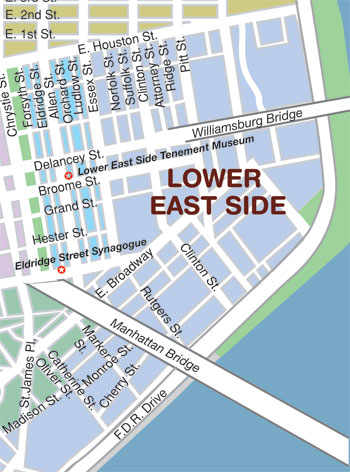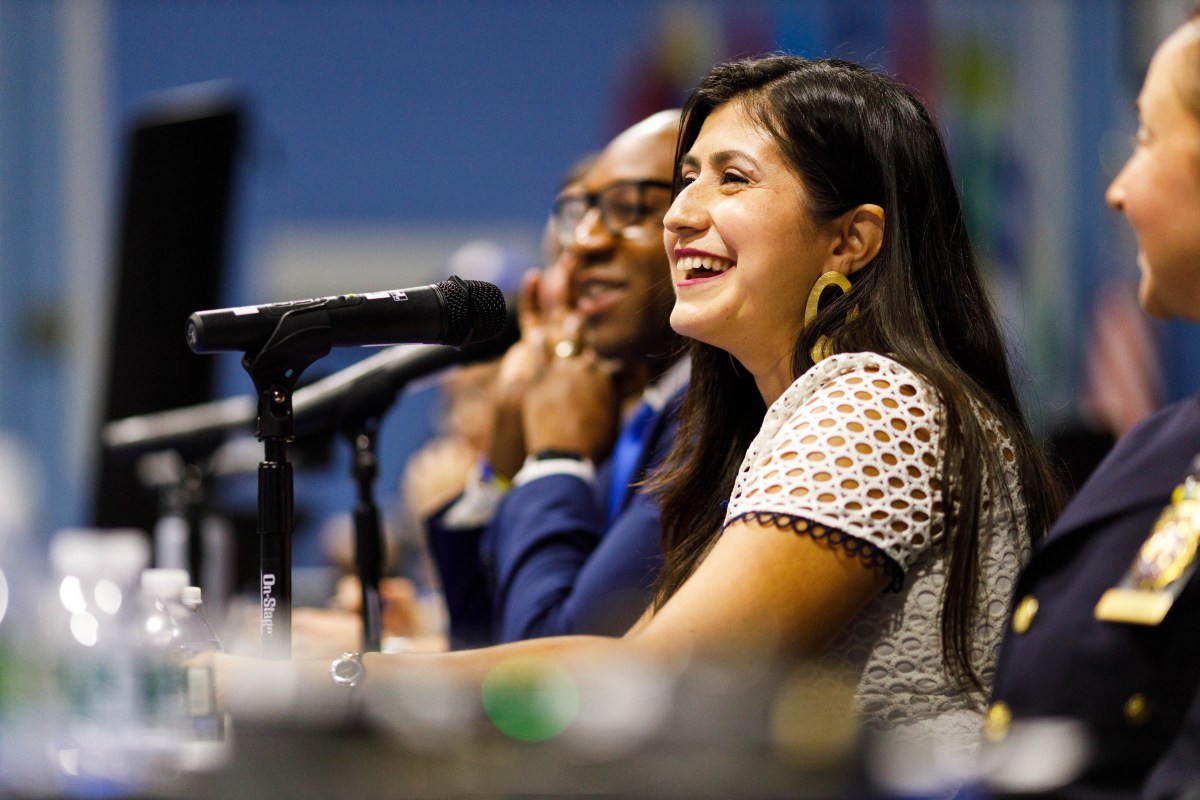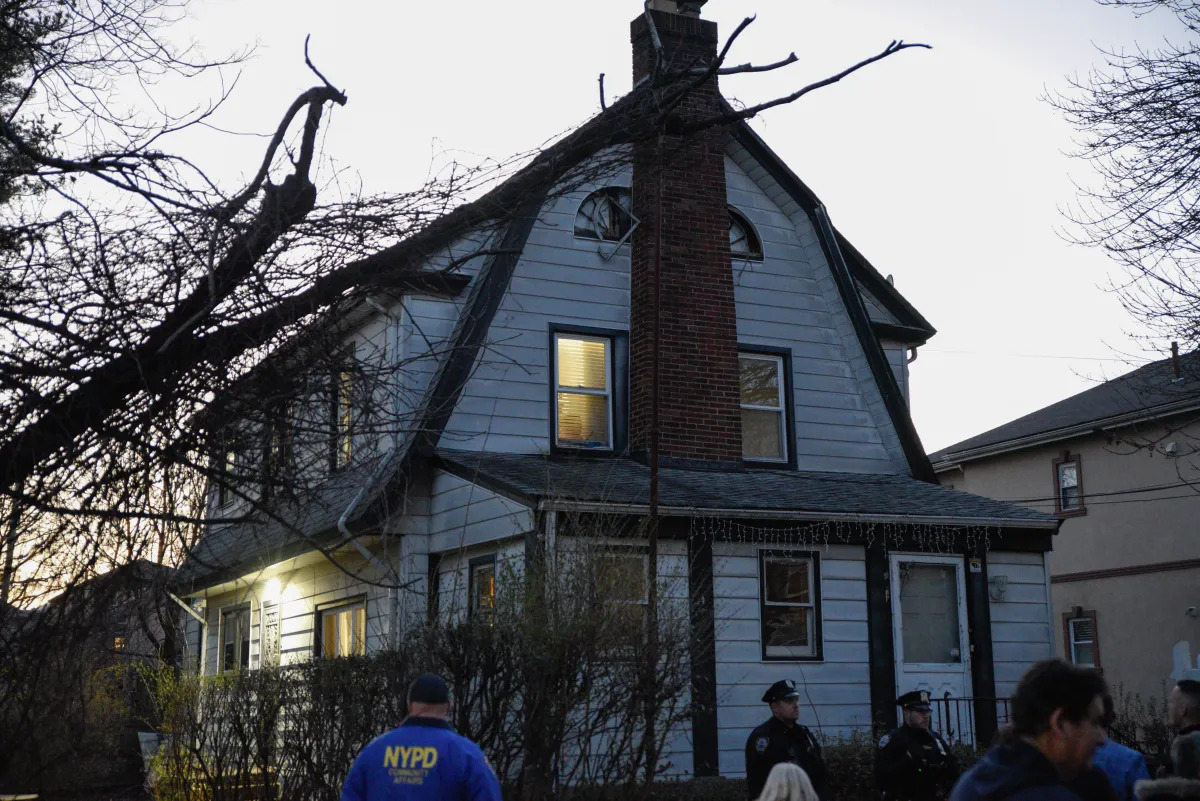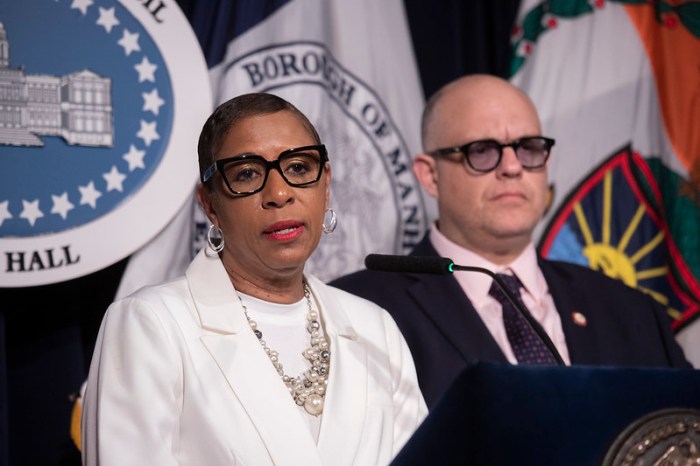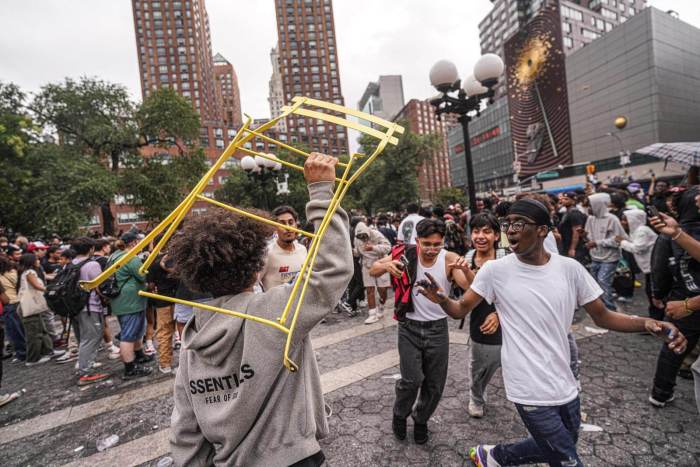BY ALINE REYNOLDS | Kids in Downtown youth sports leagues aren’t only competing against each other for wins. They’re also vying with adults for much-needed field space, both for games and practices.
Lower Manhattan’s baseball, football and other youth sports teams must apply to the city every year for hourly use of ball fields — including, in particular, eight coveted ball fields in East River Park.
Some of the leagues’ permits are grandfathered from years past, allowing them to keep their allotted field time from season to season. Nevertheless, local coaches and league officials contend they still struggle to schedule games and scrimmages due to an inefficient permitting system and adult leagues’ hogging of the fields.
The L.E.S. Warriors, a youth football league, is forced to trek to Randall’s Island for its home games, since the group lacks turf time in East River Park.
“It’s not fair,” said Trenton Turner, president of the Lower East Side Athletic Corp., the league’s parent company. Gone are the days, Turner said, when a group of kids could have a pickup game of tag football in the East Side park, as he did with his friends growing up.
“Those parks are supposed to be for the kids in their community, and the corporations are eating up the time,” Turner said.
The city’s Parks Department, which manages the permitting system for use of the East River Park ball fields, is vowing to rectify the situation. Come next fall, all youth league permit requests will be fulfilled first, according to Phil Abramson, a Parks Department spokesperson. Last year, 60 percent of East River Park field permits went to adult programs.
“We’re formalizing the longstanding practice that all youth league applications receive permits before the adult leagues, since there has been a high demand for those fields,” Abramson said.
The department’s new plan will be finalized by the end of this month. That will give Parks officials time to make revisions to the current permitting plan after reviewing testimony from a citywide hearing held in Chelsea at the end of last month.
Downtown Little League had field permits for only one day a week during its 15-week season last spring, according to Bill Martino, the league’s president. As a result, practices weren’t long enough, he said, and the league was forced to cut back on games.
“Last year, we had way too many practices on weeknights,” said Martino, who testified at the hearing. “It probably, in retrospect, was an unsafe situation. The adult leagues shouldn’t be allowed to be there. They’re taking the fields away from the children.”
NYC Financial Services Softball League and several other adult leagues could not be reached for comment by press time.
Warren St. resident Jed Weissberg, whose two children are in Downtown Little League, said practice at the Battery Park City ball fields runs late into the evenings because the fields are overcrowded with teams.
“My 10-year-old son was practicing up until 8 or 9 o’clock on a weeknight,” Weissberg said. “That’s pretty late when you want to get him in bed by 8:30.”
Nearly half of the East River Park field permitted to the Downtown Giants is used by an adult flag football league on three weekends in the heart of the Giants’ fall season, according to Carl Frye, the league’s executive director.
“This is our only home game field, and we use every minute of daylight while playing up to five full games per day,” Frye said.
The Giants often shuffle between four different ball fields around Manhattan in a given week during their fall season, and even then, they don’t get enough practice time in, according to Julian Swearengin, the league’s president.
“It’s stressful,” Swearengin said. “Sometimes kids forget where to go.”
Another problem is that some adult leagues often don’t show up during their allotted times.
“I live across the street from East River Park,” Swearengin said, “and I see huge fields going unused in the fall.”
To solve this problem, state Assembly Speaker Sheldon Silver, who supports the proposed changes, suggested that the Parks Department launch a hotline for park users to report vacant fields, and that it re-evaluate permits based on how frequently the permit holders use the fields.
Abramson said the department already has an internal monitoring system in place to keep tabs on field usage.
“The borough permit offices often do spot-checks throughout the season to make sure the fields are being used properly and by the permitted groups,” Abramson said. “But we will work with fields staff and Parks enforcement officers to further check on permits and ask groups to present permits while they are using our fields.”



